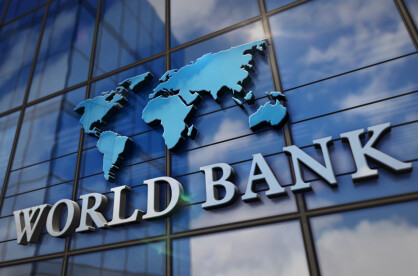The tides of power in the Indian Ocean
The Maldives still has a choice to decide who it aligns with.

Unsplash | Greg Rosenke
The Maldives still has a choice to decide who it aligns with.

Unsplash | Greg Rosenke
‘Whoever controls the Indian Ocean dominates Asia. This ocean is the key to the seven seas in the twenty-first century, the destiny of the world will be decided in these waters.’ — Alfred Thayer Mahan
The struggle for dominion in the Indian Ocean Region (IOR) has been over 1,500 years in the making. Before globalisation and high-speed travel, the region was already considered the naval hub of Asia, and also European colonial trading, with sources of spices, rubber, and tea and other raw materials making up over 60 percent of global supply. Before the arrival of the Europeans in 1498, littoral travel and trade was already established, with south and south east Asian nations utilising their maritime superiority, from the Straits of Malacca to the Suez Canal. The exchange of wealth, religion, and even early science has been the boon of the ocean, and the development of Asian nations is rightfully attributed as such.
Fast-forward to the last century, when the world was mapped and borders were drawn, and this region has seen its fair share of power-grabbing in all forms. The Maldives, as tiny as it might be, is in one of the most key locations in the 68.5 million sq km region, right in the centre of historical and modern trade routes. However, to understand the importance of this point, one must understand the basis of the aforementioned quote.
Alfred Thayer Mahan also described the modern categorisation of maritime industry. “[The] first and most obvious light in which the sea presents itself from the political and social point of view is that of a great highway; or better, perhaps, of a wide common, over which men may pass in all directions, but on which some well-worn paths show that controlling reasons have led them to choose certain lines of travel rather than others. These lines of travel are called trade routes; and the reasons which have determined them are to be sought in the history of the world.”
Before 1498 and Portuguese traveller Vasco da Gama’s unwelcome intrusion, the IOR had flourishing trade under some major powers. During the classical era, Indian, Persian, Chinese, and even the Roman Empire hailing from the Mediterranean, had footholds in the region. Specific items such as Chinese silk, Indian gold and Persian jewellery were traded with peoples of vastly distant lands, intermingled by Roman coinage and even certain written histories. However, when the Portuguese, guided by the greed for Asian spices, rounded the southern tip of the African Continent and into the IOR, the balance shifted entirely.
Given how the goods they were bringing in, such as wool, iron cooking pots and the like were meagre compared to the riches and the innovations of the people in the IOR, the Europeans set out to do what they have been doing ever since the advent of globalisation; piracy.
Pillaging, looting, hijacking port towns and shipping all the goods, gold, and people abroad, the European naval trade sought to reap all the benefits of the region with none of the balance and sustainability that had endured for 2000 years before. The collapse of Indian Ocean trade and commerce was sealed, and until the 20th century, multiple colonies of enslaved states dotted the shores. From Malaysia to Africa, the scourge of greed and imperialism scarred both the people and the environment, the same pattern that was seen on the Atlantic and Pacific Ocean Regions, setting the world back in those places while elevating the European nations beyond what was humanely possible.
Recovering from the global crime of colonialism, victimised nations of the IOR have been bouncing back most vehemently. Now, one of the most powerful emerging economies in the world is that of India, a nation that is said to be able to sustain itself without the need for global trade. Then there is China, a nation that had suffered heavily throughout world wars they had had nothing to do with, bringing in a new brand of economics straight off the Soviet drawing boards, challenging the detrimental capitalistic practices of the western world. Through grit and determination, post-colonial states have been finding the legs to stand their economies and industries upon, and the power struggle resumes anew.
The Cold-War was yet another contentious venture by developed nations against each other, exacting an absolutely unfair price from the developing world in the form of proxy wars, unstable governments, and poverty-stricken populations. The stories of Afghanistan, Syria, Iraq, and other Gulf region countries are numerous and obvious, yet another parallel has been developing in the IOR as well.
Although dubbed as ‘Post Cold-War,' power grabbing in the IOR is rampant, even with the changes in opponents. Now, the American rival is China, with its ever-expanding economy and naval control, and to achieve superiority in this region has become a national responsibility. Through smart diplomatic interplays, India is a proven ally of the US, especially with the QUAD alliance with Japan and Australia, and security installations have become a key driving point.
With military facilities south of the southern tip of Maldives, the Western nations already have much invested in terms of military control, and India has been dancing the tango with the Maldivian administration to further that control. A two-pronged concept, developing radar installations, naval harbours, and military academies in the Maldives would ensure the protection of the Maldives as well as the other stakeholders against outside, malicious influences, but who are the enemies exactly? Piracy from the poorest African nations to the west has already been curbed and controlled with the limited forces in the Maldivian arsenal, albeit barely, but the standard of oceanic surveillance and preparation, as well as the Sri Lankan security conclave, as well as the most recent, highly scrutinised UTF dockyard project, topped off with the Maldives-US defence agreement, raises more questions than assurances.
In the name of public security, the Solih Administration has been keeping quite a lot of information secret, as they are rightfully allowed to do so. However, some of these "secrets" involve decisions that shape the direction of Maldives' involvement in geopolitics for years to come, decisions that may become irreversible, even with changes in administration. Some of these decisions will impact travel and trade within the public and private sectors, the financial standing of the nation, as well as impact development goals and plans.
The strategic importance of the Maldivian archipelago has increased ten-fold with innovations in surveillance and the military technology of the modern age. The subtle yet major changes in naval capabilities of the powerful nations is a worrying thought, as the Maldivian people do not have the means to resist any strong-arming, yet the nation still has the choice to shift balances by being careful who they choose to align with.



